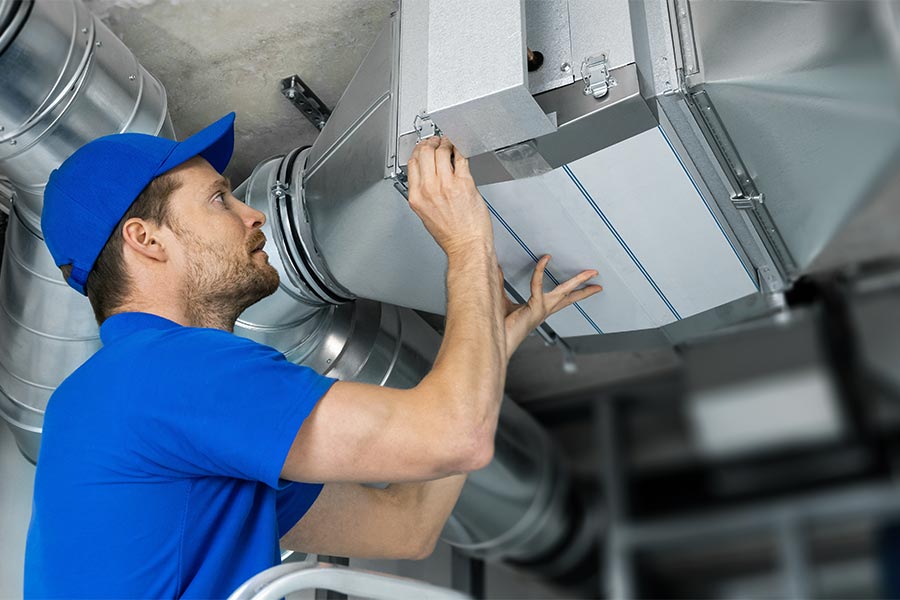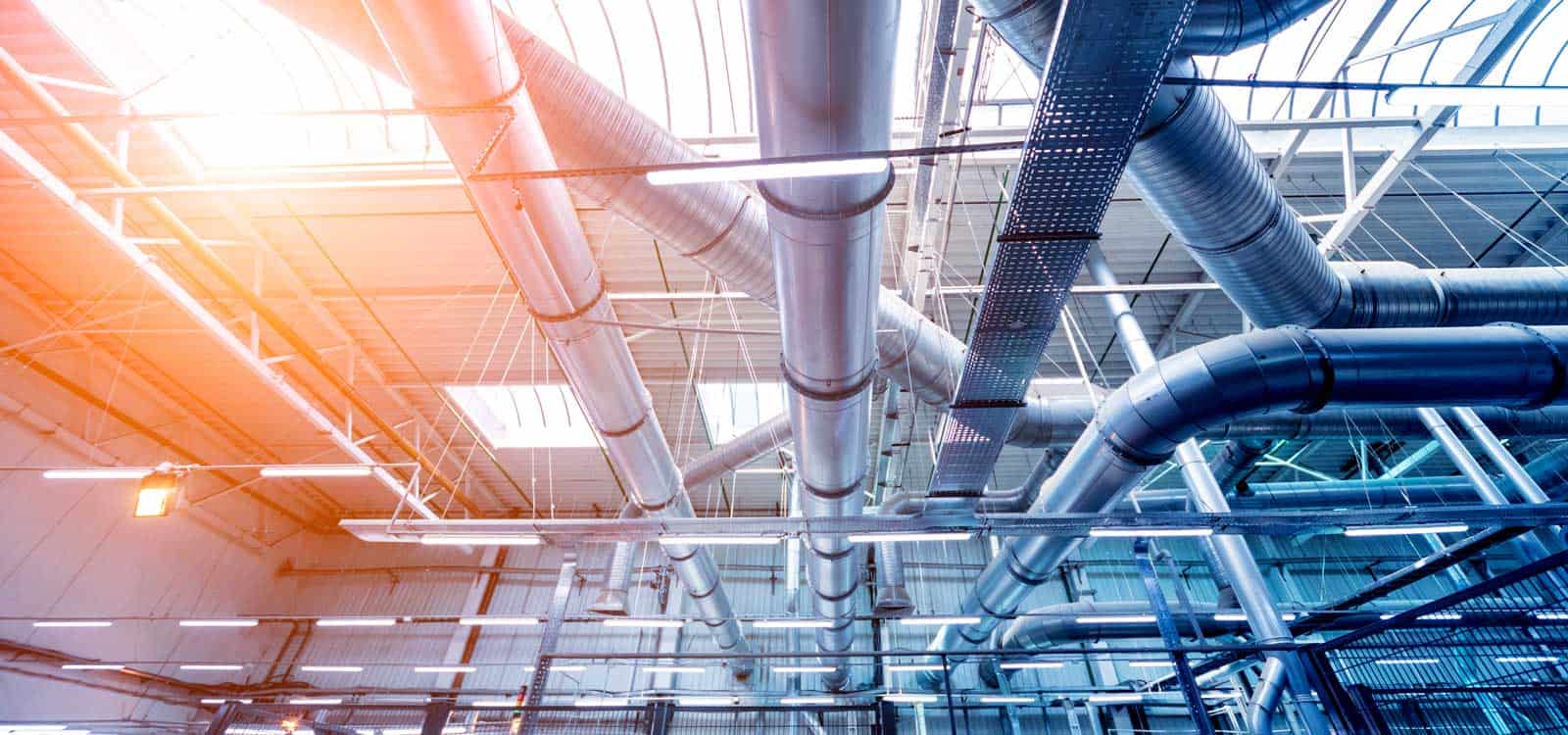Understanding the Different Kinds Of HVAC System for Optimum Efficiency
Understanding the various kinds of heating and cooling systems is essential for homeowners intending to boost comfort and energy efficiency. Central air conditioning systems give consistent temperature level control, while ductless mini-split systems use flexibility. Heatpump supply effective year-round climate monitoring. For smaller areas, window and mobile ac unit function as sensible solutions. Geothermal systems use regular below ground temperatures for sustainable home heating and cooling. Each alternative holds special advantages, motivating a closer assessment of which might match specific demands best.
Central Air Solutions
Although several property owners seek means to boost interior convenience, understanding central air systems is crucial for reliable climate control. Air conditioning runs by distributing great air with a system of ducts, dispersing it evenly throughout the home. This sort of system is composed of several essential components, including an outside compressor, an indoor evaporator coil, and a network of ductwork.
The compressor cools down refrigerant, which then takes in warmth from interior air as it travels through the evaporator coil. This cooled air is pressed with the air ducts and into living spaces, assuring a constant temperature level. Central air systems are recognized for their efficiency, frequently making use of programmable thermostats to optimize energy use. Regular upkeep, such as filter changes and system checks, is important to guarantee durability and efficiency. Understanding these elements helps house owners make educated decisions relating to setup and maintenance, inevitably boosting convenience and energy efficiency in their homes.

Ductless Mini-Split Solutions
Ductless mini-split systems use a versatile option to standard air conditioning, satisfying home owners looking for effective climate control without the need for considerable ductwork. These systems consist of an outside compressor device and several indoor air-handling units, enabling targeted cooling and home heating in details areas or rooms. This zoning capability enhances comfort by making it possible for customers to readjust temperatures based on private choices, ultimately bring about energy savings.
Setup is usually less complex and less intrusive contrasted to ducted systems, which can be beneficial for older homes or spaces with limited architectural adjustments. In addition, ductless mini-split systems often feature energy-efficient innovations, such as inverter-driven compressors, which enhance energy usage based on demand. Their portable design also permits for numerous placement choices, making them ideal for unique or tight rooms. Consequently, ductless mini-split systems have gained popularity among house owners trying to find modern-day, reliable a/c options.
Warm Pumps
Warm pumps represent a functional and energy-efficient alternative for both heating and cooling down property spaces. These systems operate by moving heat rather than producing it, making them particularly effective in modest climates. Throughout warmer months, warmth pumps extract heat from indoors and launch it outside, providing air conditioning. Alternatively, in winter season, they reverse this procedure, drawing warmth from the outdoors air or ground to warm the interior.
There are two primary kinds of heat pumps: air-source and ground-source (or geothermal) Air-source warm pumps are much more common because of their easier installation and reduced initial expense, while ground-source designs flaunt higher effectiveness and security in efficiency. Furthermore, heatpump can notably decrease energy expenses and carbon impacts when compared to conventional heating approaches, making them an environment-friendly option. Overall, warmth pumps stand as an engaging solution for homeowners seeking efficient environment control throughout the year.
Window and Portable Air Conditioners

On the various other hand, portable air conditioning system offer adaptability, as they can be easily moved from area to space. These units typically need a venting package to tire hot air via a window, yet they give a hassle-free option for short-lived cooling requirements.
Both types of air conditioning system appropriate for renters and those seeking to prevent comprehensive installation processes. Individuals need to consider elements such as BTU capability, energy efficiency scores, and sound degrees when selecting a system to ensure peak efficiency for their certain room and air conditioning demands.
Geothermal Heating and Cooling Equipments
As power performance becomes progressively important, geothermal heating & cooling systems have actually gained popularity for their sustainable approach to climate control. These systems make use of the stable temperature levels found underground to give heating in winter months and cooling in summertime. By taking advantage of the earth's natural thermal energy, geothermal systems substantially reduce dependence on nonrenewable fuel sources and reduced utility prices.

Geothermal systems normally need much less maintenance compared to typical Cooling and heating systems, resulting in lasting cost savings. With enhancing recognition of climate adjustment, these systems stand for a forward-thinking service for those looking for reliable and eco-friendly home heating and cooling down choices
Often Asked Questions
How Usually Should I Solution My A/c System?
HVAC systems need to preferably be serviced two times a year, as soon as in the springtime and once in the loss. Normal maintenance helps assure performance, lengthens lifespan, and avoids costly malfunctions throughout top use seasons.
What Dimension A/c System Do I Required for My Home?
Determining the appropriate size for a HVAC system requires determining the home's square footage, insulation high quality, and climate. An expert evaluation guarantees optimal performance, comfort, and power cost savings tailored to the certain demands of the house.
Can I Install an A/c System Myself?
Mounting a cooling and heating system independently is feasible, but it calls for technological understanding and abilities. Errors can lead to ineffectiveness or security dangers, so consulting a specialist is usually my website suggested to ensure correct installation and compliance with guidelines.
What Are the Indications My Cooling And Heating System Requirements Fixing?
Indications that a HVAC system needs fixing include unusual noises, inconsistent temperatures, raised energy costs, unpleasant smells, and regular biking. Motivate attention to these indications can protect against more damage and warranty top system performance.
Just How Can I Boost My HVAC System's Power Performance?
To improve cooling and heating energy effectiveness, one must on a regular basis replace filters, seal ducts, mount a programmable thermostat, assurance correct insulation, and schedule regular upkeep checks. HVAC experts. These actions jointly enhance efficiency while lowering power consumption and expenses
Central air conditioning systems offer consistent temperature level control, while ductless mini-split systems offer flexibility. Central air conditioning operates by distributing trendy air with a system of air ducts, dispersing it uniformly throughout the home. Central air conditioning systems are understood for their effectiveness, usually making use of programmable thermostats to enhance energy use. Ductless mini-split systems offer an adaptable option to traditional central air conditioning, catering to Get More Information house owners seeking efficient climate control without the need for considerable ductwork. Geothermal systems usually require less maintenance contrasted to typical Heating and cooling systems, resulting in long-term savings.